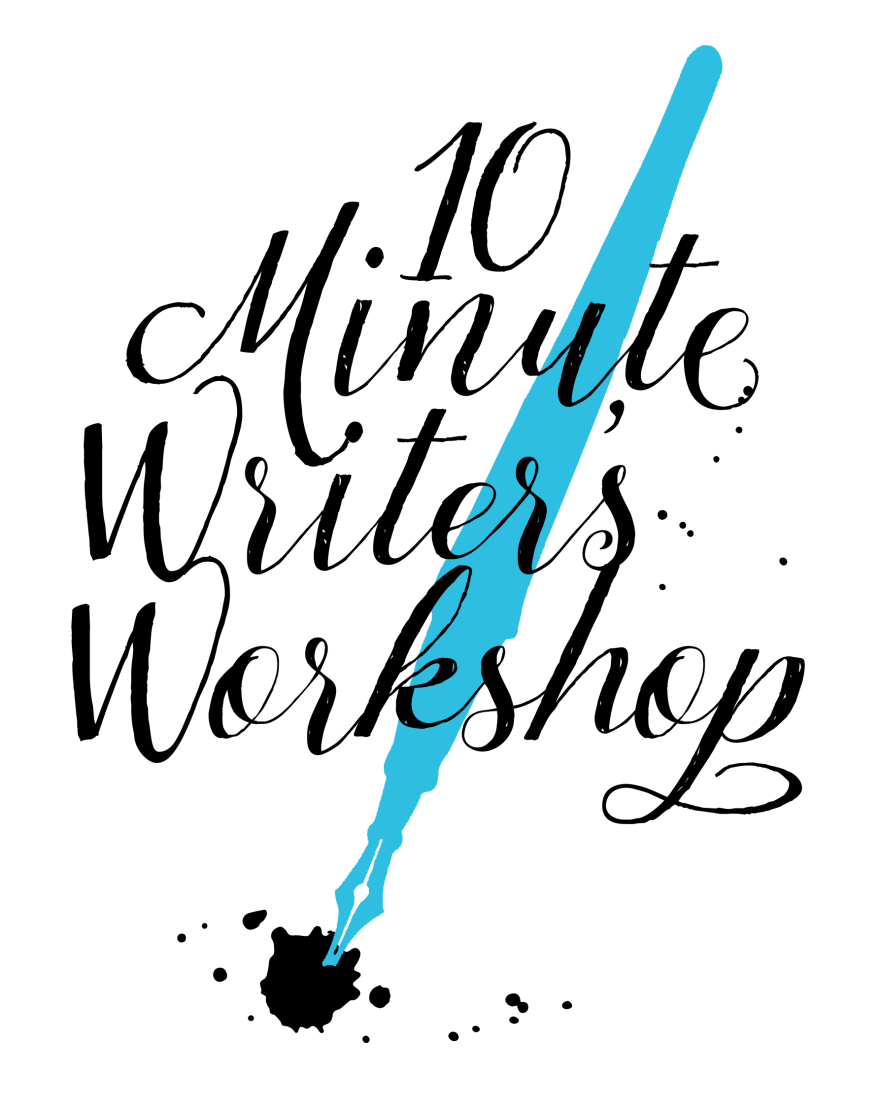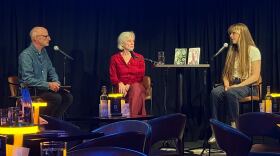Tom Perrotta is the author behind, among others, Little Children, The Abstinence Teacher, and The Leftovers, now a hit HBO drama which he co-writes. Recently, he provided the foreword to a new Penguin edition of The Scarlet Letter. For this episode of the 10-Minute Writer's Workshop, we made a date with him and settled into a corner of Harvard Book Store to ask him about his writing process.

What's harder to write - the first sentence, or the last?
First! At least for me, if I'm writing a novel, the first year I don't know what I'm doing. I have an idea, and I'm trying to figure out what it is, so usually I go very, very slowly and with a lot of doubt, and there are a lot of bad days where I don't feel I've discovered what the book is. But at a certain piont, there' s a moment of critical mass, and I kind of know what I"m writing. And once I get to that point, what was kind of a torture becomes a relative pleasure. I'm much more likely, I think, to find the last line just appear - materialize - than I am the first line. By the end, I feel like I know the story I want to tell, and I can recognize what's right much more quickly.
Do you go back and do the first line ever?
No, you know... here's my method, which is very different from a lot of writers. A lot of writers will write a sort of sloppy first draft. They'll just write through to see where they're going, and they'll go back and fix. And that is totally functional and very popular way to write a book. But I write the way, maybe, like a snail secretes a shell. I will work on the first chapter until I get it right, and then I'll go to the second chapter. It could take me three months to write the first chapter, but usually by the time I move to the second chapter I am pretty clear about what the first chapter is. I've never gone back and really changed the beginning as a result of where I got to at the end, but that's because of this method, where I'm almost writing the book as if I'm reading it in super slow motion.
A lot of writers, they write for X amount of hours per day, in this place - do you have those practices?
For years and years, my rule of thumb was something new every day. That's all I told myself. Meaning, don't do what I did when I was a story writer beginning, which was just edit all day. And that's entirely possible, but you're never going to write a novel if you're just editing all day. So, I just said I couldn't leave the desk until I wrote something new - and that could be a paragraph, it could be a sentence. Lately, I've been trying to do the Graham Greene 500 word-a-day. That's because my writing life got kind of tightened up by the fact that I'm doing two jobs - I'm working on a TV show and traveling a lot - and it felt like I needed to be more productive with my actual writing sessions, so I did put a quota on my work.
How is writing for television different for you than working on your books?
It's like an entirely different thing, because it's all talk. It's a bunch of people sitting around a table and talking things through. What you don't have is that feeling of discovering through writing. The writing is, in effect, executing a decision that was already made, that was talked through. So, whereas for me, writing is a private act of discovery, writing for TV is...we talk something into existence, and the writing is almost to create a record of the decisions that you made while talking.
Are there personal habits you would encourage other writers to pick up or avoid?
I'm no different from every other writer I've heard on the subject, which is to say if you don't read all the time, I'm guessing you're not a writer. And that's no criticism, that's a litmus test. It's not even me saying you should read all the time if you want to be a writer...you will read all the time if you want to be a writer. I don't think there's any other way to do it. And I would just say, a little bit every day probably makes more sense than "I'm going to try to do it in twelve hours on Saturday," though I know people who do it that way, because they have demanding jobs during the week. That's my other real thing, is there's no one way. Find the way that works for you. One of the things that was really liberating for me was that point in my writing life when I realized that I didn't have to sit there and suffer when I didn't know what to do. Go out take a walk, go out ride your bike, do something else. Don't hate writing. Find a way to make it pleasurable for you and I think that pleasure will find it's way onto the page.
What's your personal worst distraction to keep you from writing?
Once again, I'm dreadfully unoriginal and I check my email all the time! And I keep thinking, oh, I'm going to shut off the wi-fi, you know, but it's like any other temptation in my life...I've learned that the best way to deal with temptation is to just give in and get it over with.
Do you do a lot of research before you start?
I'm not much of a researcher. Though, The Abstinence Teacher, I did a ton of research. But I don't do it in advance. I would just spend an hour in the morning either reading the Bible, or going onto websites where Evangelicals were talking to one another. I just kind of made sure I immersed myself in that world...and then at a certain point I realized oh, I have to go to a Promise Keepers event, for the book.
Did you?
I did, yeah. I went to Baltimore with a couple friends of mine. It was really pretty great. It's kind of memorialized in the book, it's called Faith Keepers. I don't like to be trapped into a kind of journalistic obligation. I'd say for most books I end of taking like one research trip, one field trip, but most of the time I'm jsut working through my imagination.
What do you think is a common mistake for new writers?
You can get discouraged too easily. Meaning, you are going to fail, and you need to see failure as just part of the process, and not as some existential verdict on your career. I don't know if that's an error or not, it's the test. If you are discouraged by failure, you are probably not going to be able to endure all the humiliations and rejections and false steps that are just part of any writer's career. I guess there are a few lucky people who never had that happen, but then they're just set up for a fall later on, because nobody has an unbroken string of triumphs.
What is your best environment for writing?
I've never gone out of my house. You know, some writers say I need to have an office, I need to go outside of my house. I really just like to be able to wake up, have my breakfast, read the paper, and then I just go up to a quiet place in my house. And I work in the mornings, that's for sure...that's my writing time. If I'm really deep into a novel, I can sometimes go back and work in the night, but usually I have a four or five hour stretch starting mid-morning into the early afternoon, and then I've just used up my writing fuel.
Are there any books or resources you might recommend for other writers that might be helpful?
You know, there are a bunch of great how-to books, and people know what they are...Stephen King's On Writing, I think, is a fabulous one, Annie Lamott has one, there's The Writer's Way...there're all kinds of things. But actually what I do, self-help for me is to read biographies of writers. And the reason is, it again reminds me there's no one way to do it, and the only thing these people all had in common is some deep passion to do it. For some reason, just to read about somebody who managed to get it done through whatever their quirks and their challenges were, that is inspiring to me. SO, weirdly, biography i smy self-help.
What was the best piece of advice you ever got about writing?
Hmm... that's a good question. This is the funny thing, I've had great teachers, and what I always got from them was just, it was really an example thing. Nobody ever said something that changed the way that I thought about work, I think. But I would watch them, and it would just help to see "oh, there's a real person, who is doing this work. It's actually possible to do it." I think they all taught that same mysterious lesson, which is you have to do it your way. Tobias Wolff was a teacher who mattered a lot to me, and I think what I got from him was just this deep sense that writing was a moral act, but you could be moral and be funny, that you didn't have to be heavy. But that was something I was getting from his work and from his person as well. There is that weird, personal transaction between a student and a teacher, and I think I was watching very closely - not just for the content of what the teacher was saying, but for who the teacher was as a person, because it seemed like a vocation, not a job.







